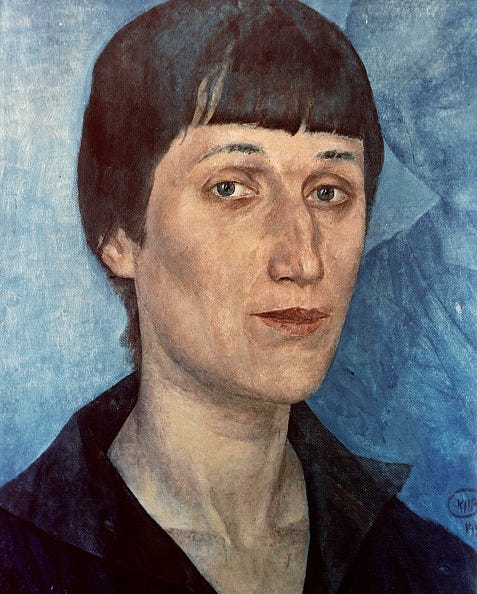“Habitats” by Marylen Grigas from Shift. © Nature’s Face Publications, 2016.
ORIGINAL TEXT AND AUDIO - 2017
It’s the birthday of novelist and short-story writer Michael Shaara, born in Jersey City, New Jersey (1928). His first story was published in a magazine called Astounding Science Fiction in 1951. When he had shown it to a professor, the man said, “Please don’t write this sort of thing. Write literature.” For the next 30 years, Shaara kept writing what he pleased. He said: “I’ve never written for a buck. Never stayed in one field. I write for the fun of it, and I don’t think of the reader.”
He idolized Ernest Hemingway and John O’Hara. He wanted to be a man of action. He was a sailor, a paratrooper, a police officer, and a professional boxer. His novel The Killer Angels (1974) is about the Battle of Gettysburg. To prepare for it, Shaara flew his own plane over the battlefield to study the terrain. The book won the Pulitzer Prize.
His last novel, For Love of the Game (1991), was published posthumously. He finished it just before he died of a heart attack. It tells the story of an aging baseball player named Billy Chapel, as he pitches his last and greatest game.
It’s the birthday of mathematician and logician Alan Mathison Turing, born in London, England (1912), who was a pioneer in the development of the computer. In school, Turing’s instructors tried to get him to study a variety of subjects, but he was only interested in science and mathematics. While a graduate student at King’s College, he wrote a paper called “On Compatible Numbers,” in which he introduced his idea for what was later called the Turing Machine, a computer that, if given enough explicit instructions, could perform step-by-step mathematical operations. He described a machine that would read a series of ones and zeros from a tape, which is the theoretical basis of the way computers work today. During World War II, he served with the British Government Code and Cypher School, where he played a significant part in breaking the German “Enigma” code.
In 1948, Turing became deputy director of the Computing Laboratory at the University of Manchester, where he worked on the Manchester Automatic Digital Machine (MADAM), the computer with the largest memory capacity at the time. He also championed the idea of artificial intelligence, and believed that machines could be created that would mimic the processes of the human brain.
In 1950, he proposed the Turing test: a tester asked questions via a keyboard to both a person and a computer. If the tester could not tell the machine apart from the person after a reasonable amount of time, the machine possessed intelligence. Turing’s scientific works were unfortunately never completed. He was arrested in 1952 for violation of British homosexuality statutes. Two years later he committed suicide.
Today is the birthday of Russian poet Anna Akhmatova, (1889). She’s considered one of Russia’s greatest poets, though for decades her work was banned and her relatives executed and imprisoned under the Joseph Stalin’s Reign of Terror.
Akhmatova was born Anna Andreyevna Gorenko in an upper-middle-class family near the Black Sea port of Odessa in Ukraine. Her mother came from a long line of powerful landowners. She started writing poetry at 11. No one in her family wrote poetry, and when she started publishing her work as a teenager, her father was worried that it would ruin the family’s reputation, so she took her grandmother’s surname, “Akhmatova,” as her own.
Akhmatova was considered a great beauty and intellect. In Paris, she met the artist Modigliani, who painted more than 20 paintings of her, several of them nudes. He was passionately in love her, and for the rest of her life, no matter where she lived or what her circumstances, she kept one of his nude portraits of her above her couch.
When her first collection, Evening, came out in 1912, it sold out its first printing of 500 copies. By the time her second collection was published, Anna Akhmatova was a very famous poet in Russia. Women, especially, adored her, and wrote poems in her honor. She said, “I taught our women how to speak, but I don’t know how to make them silent.” Of her early work, she remained somewhat embarrassed, once remarking, “These naïve poems by a frivolous girl for some reason were reprinted 13 times […] And they came out in several translations. The girl herself (as far as I recall) did not foresee such a fate for them and used to hide the issues of the journals in which they were first published under the sofa cushions.”
When the 1917 Revolution began in what was then Petersburg, Russia, many of Akhmatova’s friends fled, but she stayed, and lived through what became known as “The Terror,” and the time after, which was known as “The Thaw.” Her work was censored and she wasn’t allowed to publish, but she was so beloved in Russia that Stalin didn’t dare attack her. He did, however, imprison her son and common-law husband. She spent 17 months waiting in line outside the Kresty Holding Prison with thousands of wives and daughters, waiting to catch a glimpse of their loved ones and to give them bread. One day, a woman asked her, “Could one ever describe this?” And Akhmatova answered, “I can.” From that day on, she began composing what would become her masterpiece, a poem called Requiem. She worked on it for more than 30 years, writing down fragments. She was too terrified of being discovered by the regime to write a whole manuscript, so she had devoted friends memorize the fragments, and then she would burn the pieces of paper.
Requiem was first published in Germany in 1963, but didn’t appear in its entirety in Russia until 1987. By then Akhmatova was long dead. American singer Iris DeMent set some of the poems in Requiem to music for her album The Trackless Woods. There’s a statue of Anna Akhmatova across from the Kresty Prison.
Anna Akhmatova wrote, “I am in the middle of it: chaos and poetry; poetry and love and again, complete chaos. Pain, disorder, occasional clarity; and at the bottom of it all: only love; poetry. Sheer enchantment, fear, humiliation. It all comes with love.”
Be well, do good work, and keep in touch.®
CELEBRATE 49 years of A Prairie Home Companion with the original Powdermilk Biscuit t-shirt - CLICK HERE






Mr. Turing was sent to us to help end World War II. Why do we seem to always be cruel to good Souls? He had so much to offer yet, and we denied him that for a foolish judgment.
Listen up! There are lessons here to hear and some to live by.